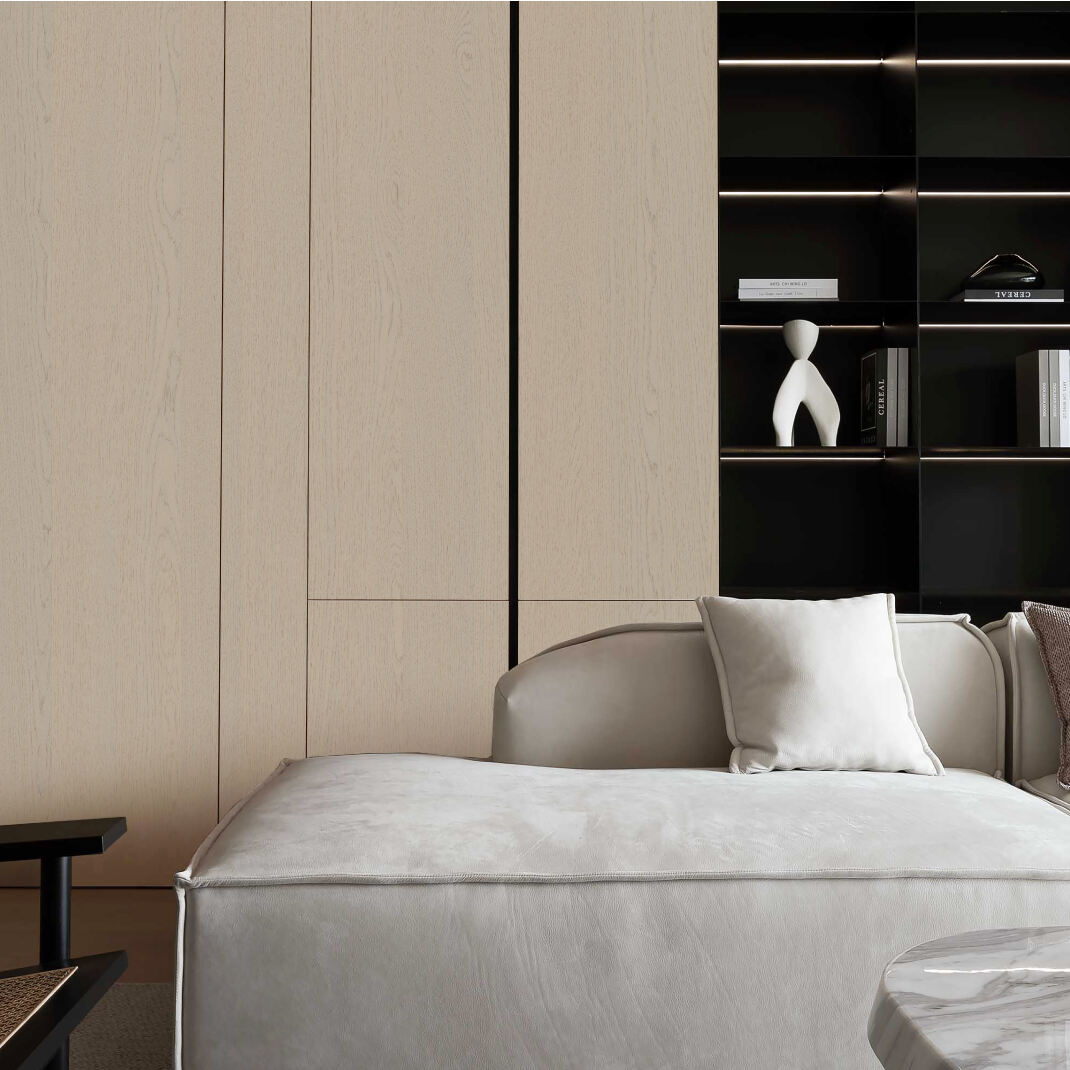Essential Door Panel Selection Guide for Modern Homes
Selecting the right door panel for your home is a crucial decision that impacts both aesthetics and functionality. Whether you're building a new home or renovating an existing space, understanding the nuances of door panel selection can transform your living environment. Modern door panels offer an impressive array of materials, styles, and features that cater to diverse architectural preferences and practical requirements.
The evolution of door panel design has brought forth innovative solutions that combine traditional craftsmanship with cutting-edge technology. Today's homeowners can choose from an extensive selection that ranges from classic wooden door panels to contemporary composite materials, each offering unique benefits for different applications.
Understanding Door Panel Materials and Construction
Premium Wood Door Panels
Wood remains a timeless choice for door panels, offering natural beauty and exceptional durability when properly maintained. Hardwoods like oak, maple, and mahogany provide superior strength and distinctive grain patterns that create a sophisticated appearance. These materials can be stained or painted to match any interior design scheme, making them incredibly versatile.
Modern wood door panels often feature advanced treatments that enhance their resistance to moisture, warping, and insect damage. Many manufacturers now use sustainable harvesting practices, making wooden door panels an environmentally conscious choice for the eco-aware homeowner.
Engineered and Composite Materials
Technological advancements have revolutionized door panel construction with engineered materials that offer superior performance characteristics. Medium-density fiberboard (MDF) and high-density fiberboard (HDF) provide excellent stability and smooth surfaces perfect for painting. These materials resist the expansion and contraction common in solid wood.
Composite door panels combine different materials to achieve optimal performance. For instance, a foam core surrounded by engineered wood delivers excellent insulation properties while maintaining structural integrity. These innovative solutions often come with extended warranties and require minimal maintenance.

Design Elements and Aesthetic Considerations
Contemporary Styles and Trends
Modern door panel designs embrace clean lines and minimalist aesthetics while incorporating sophisticated details. Flush door panels offer sleek, uninterrupted surfaces that complement contemporary architecture. Meanwhile, geometric patterns and innovative textures provide visual interest without overwhelming the space.
The latest trends include mixed-material door panels that combine wood with metal accents or glass inserts. These combinations create striking visual effects while maintaining functionality. Manufacturers are also experimenting with unique finishes that mimic natural materials but offer enhanced durability.
Traditional and Classic Options
Traditional door panel styles continue to evolve while preserving their timeless appeal. Raised panel designs, with their dimensional depth and classical proportions, remain popular choices for traditional homes. These door panels often feature intricate moldings and detailed craftsmanship that showcase architectural heritage.
Modern interpretations of classic door panel styles incorporate updated materials and construction techniques while maintaining traditional aesthetics. This fusion allows homeowners to enjoy the best of both worlds – classic beauty with contemporary performance.
Performance and Technical Specifications
Insulation and Energy Efficiency
Energy efficiency has become a primary consideration in door panel selection. Modern door panels incorporate advanced insulation materials and design features that help maintain comfortable indoor temperatures while reducing energy costs. Look for door panels with high R-values and proper weather stripping to maximize thermal performance.
Some manufacturers now offer door panels with integrated thermal breaks and multiple insulation layers. These features are particularly important for exterior applications or climate-controlled spaces where temperature regulation is crucial.
Sound Dampening Properties
Acoustic performance is another critical factor in door panel selection. Contemporary door panels can be engineered with sound-dampening materials and construction techniques that significantly reduce noise transmission between spaces. This is particularly valuable in home offices, bedrooms, or media rooms where privacy and quiet are essential.
The thickness and density of the door panel material, combined with proper sealing systems, determine its sound isolation capabilities. Many manufacturers now provide detailed acoustic ratings to help consumers make informed decisions based on their specific needs.
Installation and Maintenance Considerations
Professional Installation Requirements
Proper installation is crucial for optimal door panel performance. Professional installers understand the importance of precise measurements, proper alignment, and appropriate hardware selection. They can also address specific challenges related to your home's construction and ensure that the door panel operates smoothly.
Modern door panels often come with detailed installation instructions and specialized hardware designed to simplify the process. However, professional installation is recommended to maintain warranty coverage and ensure long-term performance.
Long-term Care and Maintenance
Different door panel materials require specific maintenance routines to preserve their appearance and functionality. Wood door panels may need periodic refinishing or sealing to protect against moisture and wear. Engineered materials typically require less maintenance but should still be cleaned and inspected regularly.
Manufacturers provide detailed care instructions that outline cleaning methods, recommended products, and maintenance schedules. Following these guidelines helps extend the life of your door panel and maintain its original beauty and performance.
Frequently Asked Questions
What factors should I consider when selecting a door panel material?
When choosing a door panel material, consider your climate conditions, intended usage, maintenance preferences, and budget. Factor in the door's location, exposure to elements, and your home's architectural style. Also evaluate the material's durability, insulation properties, and sound dampening capabilities.
How long should a quality door panel last?
A well-maintained door panel can last 20-30 years or more, depending on the material and usage conditions. Solid wood door panels often last the longest when properly maintained, while engineered materials typically offer 15-25 years of reliable service. Regular maintenance and proper installation significantly impact longevity.
What are the latest innovations in door panel technology?
Recent innovations include smart door panels with integrated security features, advanced composite materials with improved durability and insulation, and eco-friendly options made from sustainable or recycled materials. Manufacturers are also developing door panels with antimicrobial surfaces and improved fire-resistance ratings.



